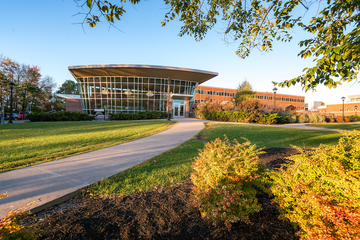
10/26/2020
As SUNY Cortland’s study-in-place period continues due to the recent spike in COVID-19 cases, it is imperative for students to recognize the importance of positive mental health by taking part in self-care activities.
The university’s Conley Counseling and Wellness Services offers students a variety of resources.
“The Counseling Center is providing a variety of services remotely this semester,” said Carolyn Bershad, director of Counseling and Student Development. The services are free and confidential for enrolled SUNY Cortland students.
“We are seeing students for individual sessions as well as for consultations and are providing a number of workshops and structured groups that give students a chance to learn and practice new skills and knowledge that will help them cope better as they connect with others,” Bershad said.
During times of heightened stress, anxiety, grief and loss, it is essential for students to recognize the signs associated with these mental health concerns. Though symptoms vary from person to person as everyone experiences these differently, these may include:
- Disrupted sleep
- Sleeping more than usual
- Over- or under-eating
- Feeling on edge
- Increased sadness
- Increased tension
- Fatigue
- Loss of interest in daily activities
- Lowered mood
- Increased irritability or anger
Participating in self-care activities can help relieve stress and anxiety associated with remote learning and the impact of uncertainty during this time.
The key to self-care is for each individual to discover what is most effective. How a person best engages in self-care will be different. It can be as simple as listening to music, going for a run or chatting with friends and family over the phone.
Others may want to speak with a health professional. Appointments for tele-counseling are available through the Counseling Center website.
“You can do self-care in small increments of time, but sometimes it can be hard to motivate ourselves to do that,” said Bershad. “You are the expert about your life. You know what makes you happy, what you enjoy and what has gotten you though hard times in the past.”
Additional self-care resources include:
- Tips for Managing the Stress of Living with COVID-19 includes advice for more successfully managing the stress you or others around you may be experiencing due to COVID-19.
- When stress strikes, self-care often goes by the wayside. Information on the benefits of self-care and ideas for developing your own self-care practices is available online.
- Psychology Today addresses how to think about and approach life to promote flexibility and resilience in order to find the opportunities, not just the stressors, associated with physical distancing.
- com offers a review of various areas of wellness and self-care, along with worksheets students can use to enhance their own personal self-care.
To maintain the health and safety of those on campus, most CCWS activities that were once held in person have moved online due to the ongoing global pandemic.
The Health Promotion Office’s “Wellness Wednesday” series now takes the form of a weekly podcast called “Take 10 for You,” which can be found on SoundCloud and Twitter. These podcasts are 10 minutes long and provide additional ideas on how to cope more effectively and assure students that what they are experiencing are normal reactions.
A complete list of other services as well as resources can be found on the Counseling Center website.
Additionally, SUNY has launched a comprehensive plan to expand access to mental health services for all SUNY students. SUNY Chancellor Jim Malatras announced a partnership with Thriving Campus in early October. It will help connect students from all 64 campuses to a network of more than 6,000 licensed mental health professionals.
As the effects of COVID-19 are being felt by everyone in the Cortland community, Counseling Services staff want to reassure all students that it is normal to experience worry in the face of uncertainty and students are not alone in this struggle.
“I would encourage everyone on campus to attend to their emotional and psychological needs, to look inwards and to honor their experiences of this difficult time with a lot of care and with kindness,” said Bershad. “Think about the relationship you have with yourself and try to be as good of a friend to yourself as you are to others.”
Prepared by Communications Office writing intern Shannon Imbornoni